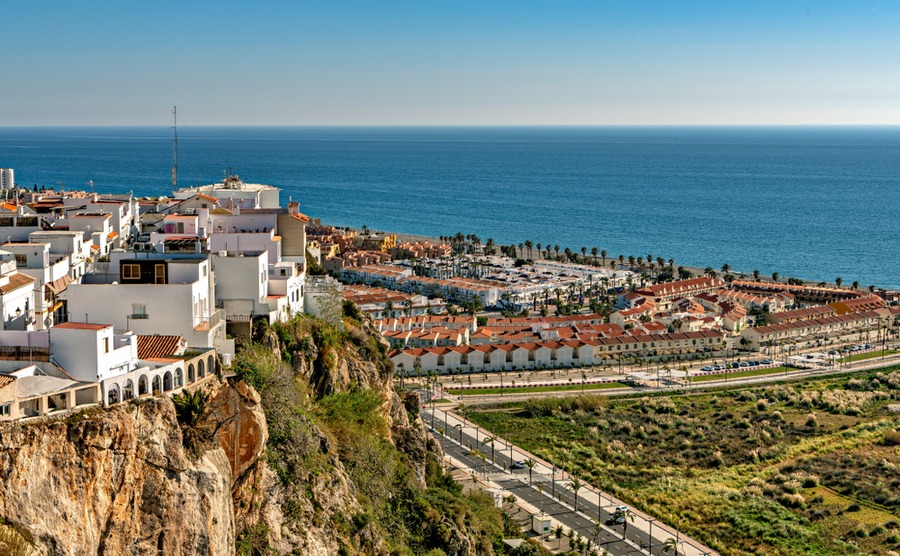Letting your Spanish property
Few of us, when booking a Spanish holiday in the summer haven’t imagined the profits we could make on a property from short-term lets. And many thousands of us do just that. However, there are many vital preparations to take before you can make your Spanish property available to rent. Moreover, with the affordability of homes a hot political topic in Spain right now, rules are changing frequently. Here we cover the most important points.
Rules and regulations
Be aware that there are very strict rules to ensure that all landlords maintain their rental property adequately and ensure they comply with all relevant legislation. These include building and disability regulations.
Some typical minimum requirements might be:
- You will need a Licence of First Occupation or Habitatian Licence (the name can vary) for the property.
- The property must comply fully with all local and national planning, health and safety, disability access and security laws.
- All rooms must be well ventilated, with blinds or shutters.
- There must be a fixed air conditioning unit in every room of the property. A portable device will not do.
- If letting your property in the winter, (October – April) a fixed heater must be available in each room.
- You must provide a first aid kit and fire extinguisher.
- You are liable for a full cleaning service at the start of each new tenancy.
- Adequate bed linen and towels may have to be supplied based on the maximum occupancy, plus one extra set.
Rules vary from region to region. See the home-rental rules for Andalusia, including the Costa del Sol, here.
All property owners in Spain who wish to rent out their property need to apply for a licence to let the property. Be aware that these are not always approved. Barcelona, in particular, has stopped issuing lettings licences. AirBnb has been forced to disclose details of its rental home-owners which has allowed the authorities to investigate breaches and impose fines, including on unpaid tax.
Another problem for landlords is with increased rights for tenants. These can include, for long-term tenants, the right to stay in a property for five or seven years. Indeed the Global Property Guide highlights the high taxes and strongly pro-tenant laws as being serious negatives to renting in Spain.
On the other hand, people wouldn’t be doing it if it wasn’t highly profitable.

Highly rentable holiday homes in Salobrena. But beware Andalusia’s strict rules
To be put in touch with a trusted solicitor, who can answer your questions on letting a Spanish property, fill in this short form.
Insurance
It’s key to get property insurance in case anything happens. You have a couple of options here. Firstly, you can take out a policy in Spain; this will often be the cheapest choice, but the service and cover can be poorer. You also face the difficulty of dealing with quite complicated matters in Spanish.
Secondly, you can use a broker based in the UK – which gives you the possibility of working in English and with companies regulated under the FSA. We recommend Intasure, who specialise in second-home and holiday-home insurance. They have over 3,000 5* reviews from their clients, 95% of whom say they would recommend their services.
Any physical damage to your property or belongings, as well as any other damages like escape of water, oil or sewage, or from natural disasters, can be a costly to fix. That’s why it’s so important to make sure you’re insured – especially when you also have guests staying in your property.
What is covered with holiday home insurance? These are the things you will want included in your policy:
- Accidental damage within your home.
- Employee liability (for cleaners, gardeners, etc)
- General theft and theft by guests
- Unoccupied insurance (for when the property is empty)
- Swimming pool protection
- Cover for long or short term lets
- Public liability
You can read much more about Spanish holiday home insurance here.
Additional costs
It’s important to also include the costs for your property into your calculation. These will naturally differ from house to house, but it’s not difficult to estimate.
Household bills and expenses
Household bills in Spain are lower than in the UK, and you could budget around €150 a month for electricity, gas, water, rubbish collection etc. on a two bedroom apartment with two people living there. Some costs will vary between the regions, for example water costs over €40 a month in Murcia down to €12 in parts of Castile & Leon.
Community fees
If your rental property is on any kind of estate or urbanisation, you will pay community fees will also vary according to location. In quieter, less blingy areas, you may pay less. In Almeria, for instance, you’d pay an average of €37 while in Malaga on the Costa del Sol the average is €57. The main determinant of the fees will, however, be the quality of the area and property. For a cheap apartment they could be as little as €15 per month but for a gorgeous apartment with sea views perhaps up to €200. (It’s not just the view – there’s higher maintenance costs from sea air too).
However, you do need to pay community fees. You can usually get away with around €50 per month, but ensure you check, as it is not unheard of for fees to reach €200 per month – quite a dent in rental of maybe just €800 for an upmarket two-bedroom apartment.
Property management
Apartments are generally easier and cheaper to manage as holiday homes than villas. Doing without a garden and private pool will drastically reduce maintenance costs, although if you buy in a tourist urbanisation with communal facilities you might even get a golf course on the doorstep. In Spain there really is something for everyone. For long distance renting the cleaning and maintenance fees soon add up. The minimum wage in Spain works out at around €5 per hour, but you’ll often pay more in cities and costas. For management there is a thriving business among expats looking after each others’ rental properties, but even with mate’s rates you need to allow at least 10% of your rental fee, and potentially as much as 30% if it includes marketing the property and meeting and greeting.

All property owners in Spain who wish to rent out their property need to apply for a licence to let the property.
Tax on your profits
Spain’s tax system is divided between the national government and the Communities, so there are a number of variables to consider. Overall, you’ll be paying three main taxes:
- Gravamen especial sobre bienes inmuebles de entidades no residentes. This is a special tax on non-residents’ property that you’ll pay in January. The rate is 3% of your property’s land-registry value.
- Impuesto sobre la renta de no residentes, or non-resident income tax. This takes 19% of your rental income. For non-EU citizens, it’s 24%. You’ll declare your income each quarter, in April, July, October and January.
- Impuesto sobre bienes inmuebles (IBI). A land value tax. Commonly known as contribución, it’s set by town halls individually. Again, it taxes your property’s value on the land registry. Rural properties will pay around 0.3%-0.9%, while urban ones will pay around 0.4%-1.1%. You may find extra increases depending on local additions, such as if your municipality offers extra services (+0.06%). Being in a provincial capital or having collective public transport can add 0.07%.
In total, therefore, you can expect the following:
- Tax on your property’s land-registry value: 3%-4.1%
- Tax on your rental income: 19%
Don’t get caught out!
It is always advisable to consult an independent solicitor before you consider letting your property, to ensure you comply with all relevant rules and requirements. Many landlords have been fined in sums running up to thousands of euros for not getting the right licence, planning permission or ensuring disability access.
In Andalusia a first offence can attract a fine of €2,000 and more serious offences up to €150,000.

